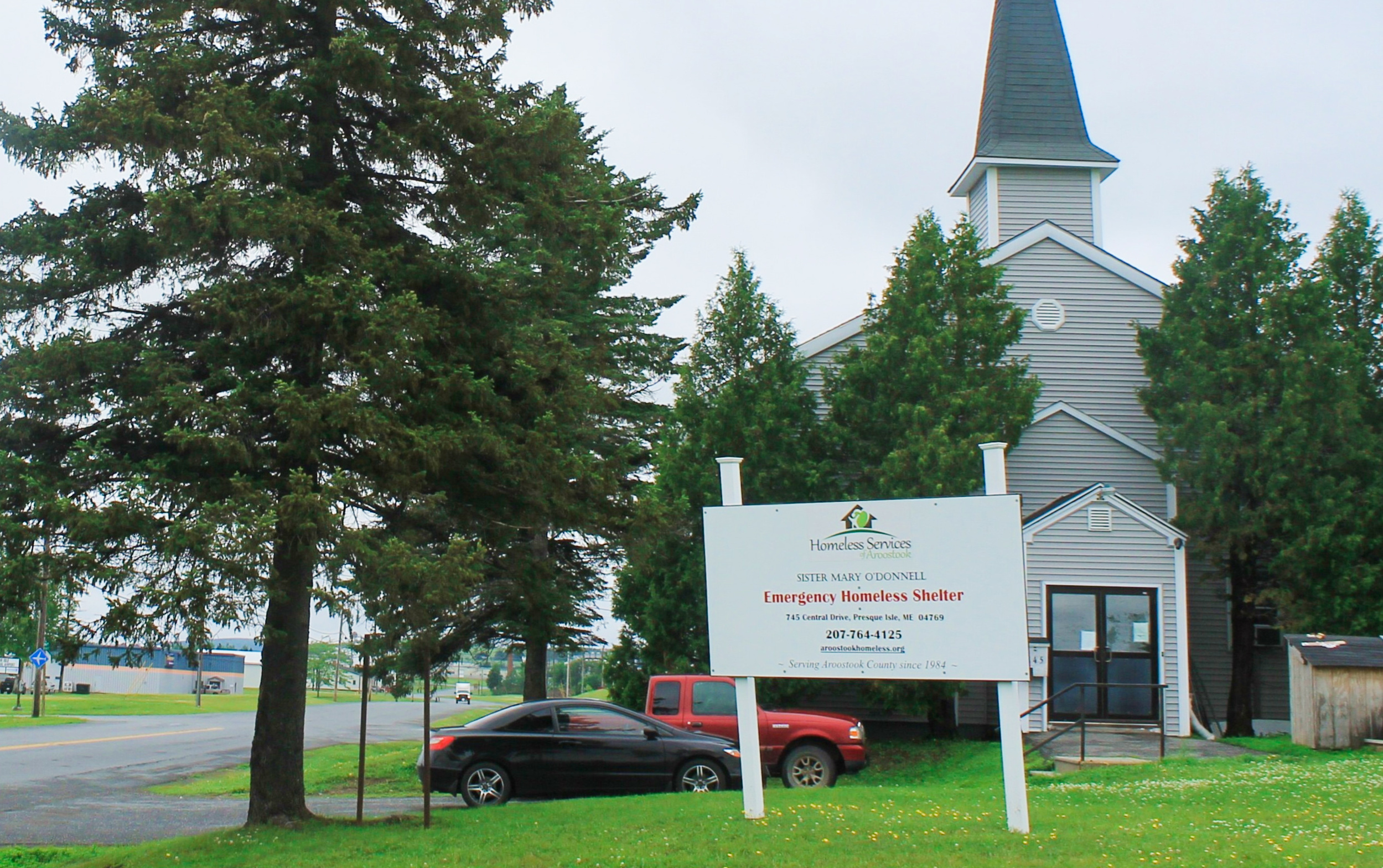
PRESQUE ISLE, Maine — The coronavirus pandemic has dealt many challenges to Homeless Services of Aroostook — including the need for additional board members and a redesign of two local shelters — bringing drastic changes to how they serve The County’s homeless population.
When COVID-19 was declared a pandemic, HSA staff redesigned both of its shelters — the Sister Mary O’Donnell Emergency Homeless Shelter and Aroostook Bridge — to meet recommended social distancing guidelines. The O’Donnell shelter primarily focuses on families while Aroostook Bridge, which opened last summer, is a low-barrier shelter that serves individuals.
Aroostook Bridge now contains 15 beds, compared to 20 before the pandemic, while O’Donnell has reduced its capacity from 43 to 29 beds. Both shelters now have barriers between all beds, which are spaced six feet apart. Residents and staff members receive temperature checks twice a day.
Before the pandemic, Aroostook Bridge served individuals with immediate housing needs from 6 p.m. to 8 a.m., but the shelter shifted to 24/7 operation after Aroostook County Action Program had to close its Hope and Prosperity Resource Center during day hours to prevent possible coronavirus spread.
Though ACAP operated a temporary shelter at the University of Maine at Presque Isle’s Wieden Gymnasium from April to June, that shelter has now closed due to the university’s efforts to reopen in the fall. The temporary shelter allowed ACAP and HSA to house 17 individuals, 10 of whom were placed in more permanent housing arrangements.
ACAP is preparing to reopen the resource center at a location separated from its main office in Presque Isle.
“Moving forward, we will continue to partner with HSA as well as continue to provide services to the clients that we share,” said Heidi Rackliffe, Hope and Prosperity Resource Center director.
Melanie Bubar, interim executive director for HSA, said ACAP has remained a crucial partner throughout the pandemic and continues to work with shelter residents on a regular basis.
“We have an in-house case manager, but she also coordinates with other case managers,” Bubar said.
In addition to ACAP and UMPI’s assistance, short-term funding from MaineHousing has allowed HSA to place new arrivals at local hotels, but that funding will not be available after August.
Much uncertainty remains as to what official guidelines MaineHousing will put in place to regulate how state homeless shelters should restructure beds and common areas where residents gather.
“We have no idea what the new normal is going to look like for the next six months to a year or whether we’ll have to build a new building or redesign our existing buildings,” said Dave Adams, an HSA board member.
A further complication arising from the pandemic is the need to acquire new board members to replace those who have recently stepped down. Though the HSA is allowed to have up to 12 on its board, there are currently seven members and three vacancies.
Adams stated that having as many board members as possible helps the organization to better navigate challenges and provide services to shelter residents. Board members take part in monthly meetings, volunteer at special events for special residents and help HSA meet the needs of individuals and families.
“Previous experience with mental health or homeless services helps, but what we really need are smart and passionate people,” Adams said. “When you have more people on a board, you get many more fresh ideas and perspectives.”
Anyone interested in becoming a HSA board member can contact Adams at dave@dascoinc.net or Bubar at director@aroostookhomeless.org.







